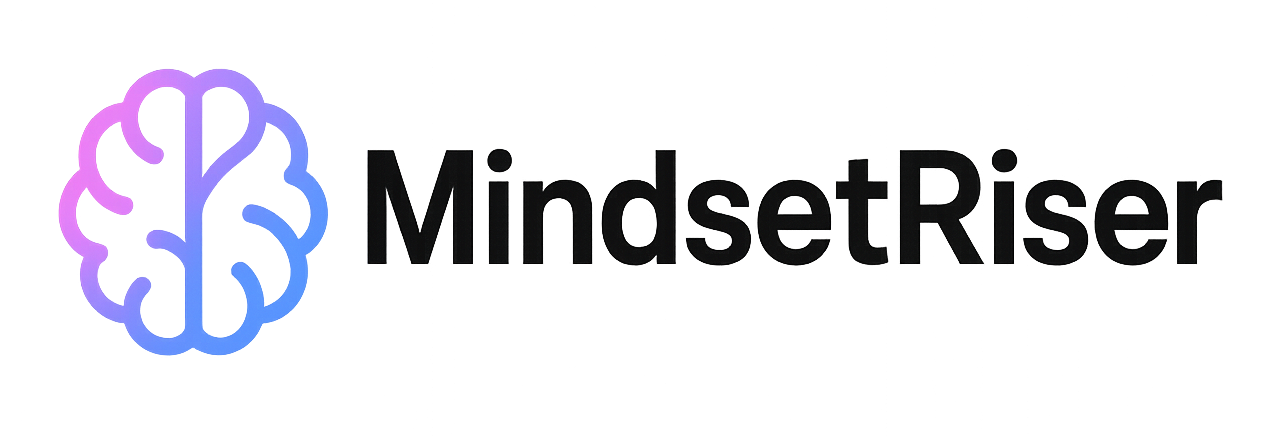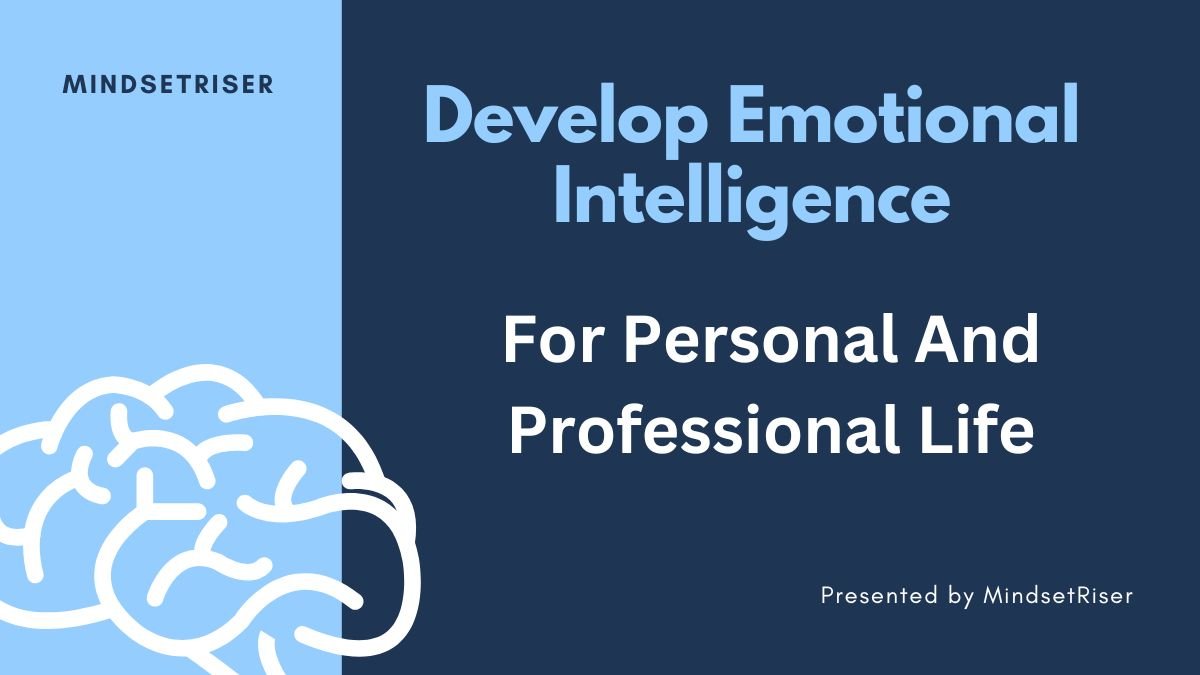How to Develop Emotional Intelligence for Personal and Professional Success
Introduction
Emotional intelligence (EI) is one of the most valuable skills you can develop. It plays a crucial role in how we manage emotions, navigate relationships, and make decisions. In both personal and professional life, a high level of EI leads to better communication, stronger relationships, and improved leadership abilities.
If you’ve ever struggled with handling emotions, resolving conflicts, or understanding others, this guide will show you how to develop emotional intelligence step by step.
What is Emotional Intelligence?
Emotional intelligence refers to the ability to recognize, understand, and manage your own emotions while also being aware of and influencing the emotions of others. It consists of five key components:
1. Self-Awareness
Being aware of your emotions and understanding how they affect your actions is the foundation of emotional intelligence.
📌 How to Improve It:
- Reflect on your emotions throughout the day.
- Keep a journal to track emotional triggers.
- Ask for feedback from trusted friends or colleagues.
✅ Why It’s Important: Self-awareness helps you recognize emotional patterns and make better decisions.
2. Self-Regulation
Controlling your emotions, especially in stressful situations, allows you to respond rather than react impulsively.
📌 How to Improve It:
- Practice deep breathing or meditation during stressful moments.
- Count to ten before responding in emotionally charged situations.
- Reframe negative thoughts into positive ones.
✅ Why It’s Important: Mastering self-regulation prevents conflicts and enhances emotional stability.
3. Motivation
Highly emotionally intelligent people are driven by internal motivation rather than external rewards.
📌 How to Improve It:
- Set personal and professional growth goals that inspire you.
- Focus on long-term benefits rather than short-term gratification.
- Surround yourself with positive, goal-oriented individuals.
✅ Why It’s Important: Motivation fuels perseverance and resilience, leading to greater success.
4. Empathy
Understanding others’ emotions strengthens personal and professional relationships.
📌 How to Improve It:
- Listen actively without interrupting.
- Observe body language and nonverbal cues.
- Put yourself in others’ shoes before making judgments.
✅ Why It’s Important: Empathy builds trust and improves communication skills.
5. Social Skills
The ability to manage relationships and interact effectively with others is essential for emotional intelligence.
📌 How to Improve It:
- Work on active listening and eye contact.
- Handle conflicts with diplomacy and patience.
- Develop networking and collaboration skills.
✅ Why It’s Important: Strong social skills help in career advancement, leadership, and personal relationships.
How to Develop Emotional Intelligence in Daily Life
1. Practice Mindfulness and Emotional Awareness
Mindfulness enhances self-awareness by helping you focus on the present moment.
🔹 Try this: Spend five minutes each day observing your emotions without judgment. Identify what triggers stress, happiness, or frustration.
2. Improve Emotional Vocabulary
Being able to label emotions accurately can help you process and communicate feelings better.
🔹 Try this: Instead of saying, “I’m stressed,” define it more precisely—”I’m overwhelmed by deadlines” or “I’m anxious about an upcoming meeting.”
3. Learn to Respond, Not React
Knee-jerk reactions often escalate situations. Instead, pause before responding.
🔹 Try this: When faced with a conflict, take a deep breath and ask yourself, What outcome do I want from this situation?
4. Build Better Relationships Through Empathy
Emotional intelligence enhances connections by making others feel heard and valued.
🔹 Try this: Practice active listening by summarizing what someone says before responding. This shows you understand their perspective.
5. Handle Criticism Gracefully
Instead of reacting defensively, view criticism as an opportunity to improve.
🔹 Try this: Ask for clarification and feedback before responding to negative comments. This prevents misunderstandings.
6. Manage Stress Effectively
Uncontrolled stress leads to poor emotional regulation. Developing healthy coping mechanisms is key.
🔹 Try this: Engage in activities like exercise, deep breathing, or journaling to manage stress proactively.
7. Develop Conflict Resolution Skills
Conflicts are inevitable, but emotionally intelligent individuals handle them constructively.
🔹 Try this: When resolving a conflict, focus on solutions rather than dwelling on the problem. Express concerns respectfully and listen to the other person’s viewpoint.
How Emotional Intelligence Benefits Your Career and Life
In the Workplace
✅ Stronger leadership skills
✅ Better teamwork and collaboration
✅ Improved problem-solving and decision-making
✅ Higher job satisfaction and career growth
In Personal Life
✅ Healthier relationships and communication
✅ Reduced stress and anxiety
✅ Increased self-confidence and emotional resilience
✅ Greater overall happiness and fulfillment
Conclusion
Developing emotional intelligence is a lifelong process, but the benefits are undeniable. Whether you’re aiming for career growth, stronger relationships, or better mental well-being, improving your EI will help you achieve success in all areas of life.
Start today by applying just one or two of these strategies, and over time, you’ll notice a positive shift in how you interact with others and handle emotions.
Key Takeaways
✅ Emotional intelligence consists of self-awareness, self-regulation, motivation, empathy, and social skills.
✅ Practicing mindfulness, improving emotional vocabulary, and managing stress enhances EI.
✅ Strong emotional intelligence leads to career success, better relationships, and personal growth.
✅ Conflict resolution and active listening improve professional and personal interactions.
✅ Small daily habits can lead to significant improvements in emotional intelligence over time.

